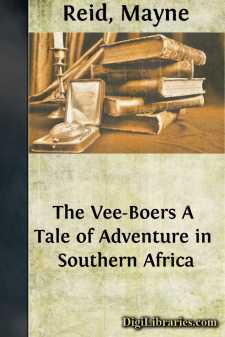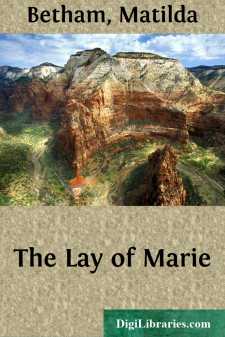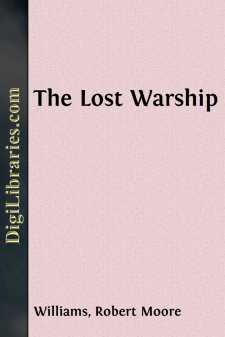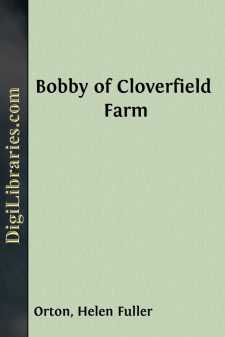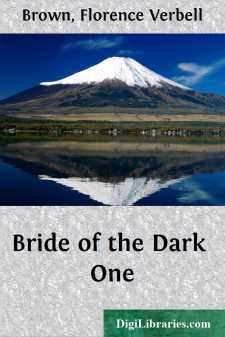Fiction
- Action & Adventure 180
- Biographical 15
- Christian 59
- Classics
- Coming of Age 5
- Contemporary Women 3
- Erotica 8
- Espionage/Intrigue 12
- Fairy Tales, Folklore & Mythology 236
- Family Life 169
- Fantasy 117
- Gay 1
- General 596
- Ghost 32
- Historical 808
- Horror 43
- Humorous 160
- Jewish 25
- Legal 4
- Medical 22
- Mystery & Detective 315
- Political 49
- Psychological 41
- Religious 64
- Romance 159
- Sagas 11
- Science Fiction 730
- Sea Stories 113
- Short Stories (single author) 537
- Sports 10
- Suspense 1
- Technological 8
- Thrillers 2
- Urban Life 31
- Visionary & Metaphysical 1
- War & Military 173
- Westerns 199
Classics Books
Sort by:
by:
Saki
CHAPTER I: THE SINGING-BIRD AND THE BAROMETER Cicely Yeovil sat in a low swing chair, alternately looking at herself in a mirror and at the other occupant of the room in the flesh. Both prospects gave her undisguised satisfaction. Without being vain she was duly appreciative of good looks, whether in herself or in another, and the reflection that she saw in the mirror, and the young man whom she...
more...
by:
Mayne Reid
On the Karoo. A vast plain, seemingly bounded but by the horizon; treeless, save where a solitary cameel-doorn (Note 1) spreads its feathered leaves, or a clump of arborescent aloes, mingled with rigid-stemmed euphorbias, breaks the continuity of its outline. These types of desert vegetation but proclaim its sterility, which is further evinced by tufts of whiteish withered grass, growing thinly between...
more...
INTRODUCTORY NOTE. "Septimius Felton" was the outgrowth of a project, formed by Hawthorne during his residence in England, of writing a romance, the scene of which should be laid in that country; but this project was afterwards abandoned, giving place to a new conception in which the visionary search for means to secure an earthly immortality was to form the principal interest. The new...
more...
by:
Matilda Betham
THE LAY OF MARIE. CANTO FIRST. The guests are met, the feast is near, But Marie does not yet appear! And to her vacant seat on high Is lifted many an anxious eye. The splendid show, the sumptuous board, The long details which feuds afford, And discontent is prone to hold, Absorb the factious and the cold;— Absorb dull minds, who, in...
more...
The sun came up over a glassy, motionless sea. In the life-boat, Craig arranged the piece of sail to protect them from the sun. He hoisted it to the top of the improvised mast, spreading it so that it threw a shadow on the boat. There was no wind. There had been no wind for three days. Craig stood up and swept his eyes around the circle of the sea. The horizon was unbroken. As he sat down he was aware...
more...
ITo the gods themselves is due the discovery, to Apollo and Artemis, patrons of the chase and protectors of the hound. (1) As a guerdon they bestowed it upon Cheiron, (2) by reason of his uprightness, and he took it and was glad, and turned the gift to good account. At his feet sat many a disciple, to whom he taught the mystery of hunting and of chivalry (3)—to wit, Cephalus, Asclepius, Melanion,...
more...
One cold morning in March, Bobby Hill was wakened by a sound he had not heard since last Fall, "Chirp, chirp, cheer-up." "That sounds just like a robin," he thought. He sat up in bed and looked out of the window. It was a cold, dark, stormy morning. Heavy clouds covered the sky. The North wind was blowing the snow hither and thither. Bobby leaned nearer the window so he could see the...
more...
by:
Anonymous
Psalm 11:1Blessed is the man who doesn't walk in the counsel of the wicked,nor stand in the way of sinners,nor sit in the seat of scoffers;1:2but his delight is in Yahweh's law.On his law he meditates day and night.1:3He will be like a tree planted by the streams of water,that brings forth its fruit in its season,whose leaf also does not wither.Whatever he does shall prosper.1:4The wicked are...
more...
he last light in the Galaxy was a torch. High in the rafters of Mytor's Cafe Yaroto it burned, and its red glare illuminated a gallery of the damned. Hands that were never far from blaster or knife; eyes that picked a hundred private hells out of the swirling smoke where a woman danced. She was good to look at, moving in time to the savage rhythm of the music. The single garment she wore bared her...
more...
by:
Henry C. Watson
STORY OF GENERAL WASHINGTON. "GRANDFATHER," said Thomas Jefferson Harmar, "won't you tell us something about General Washington?" "I could tell you many a thing about that man, my child," replied old Harmar, "but I suppose people know everything concerning him by this time. You see, these history writers go about hunting up every incident relating to the war, now, and...
more...



